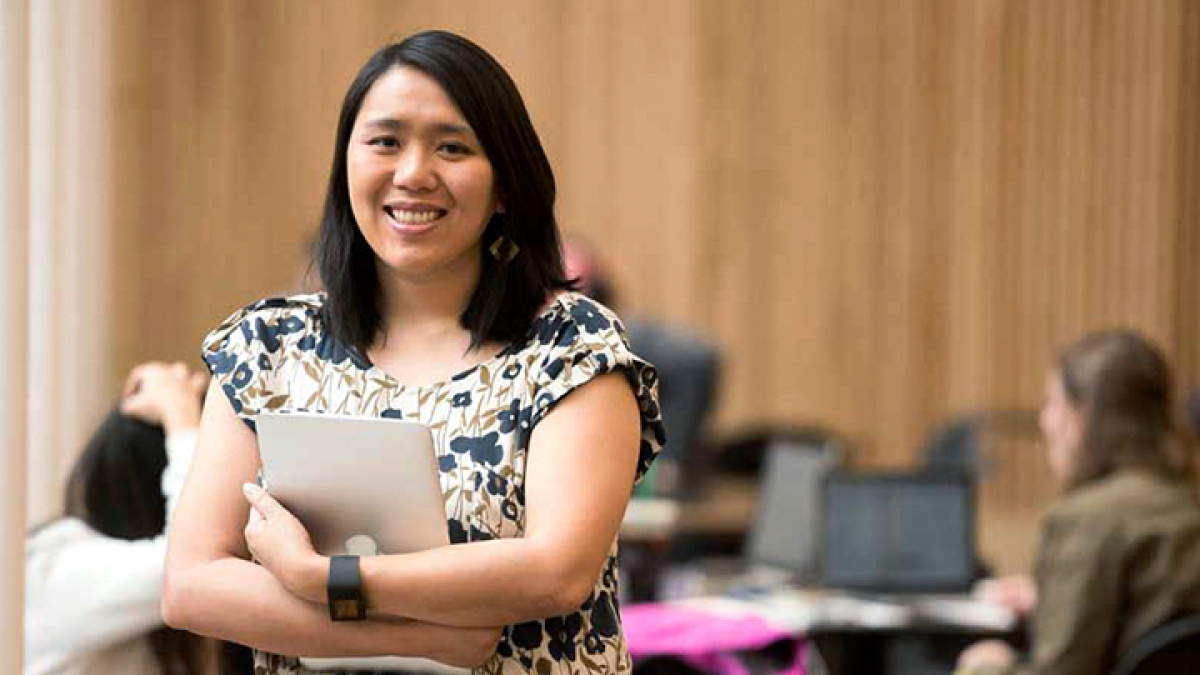
Diana Jue-Rajasingh, PhD
Shortly after the company I cofounded, Essmart, launched in southern India, my colleagues and I saw the huge effect even simple technology can have on a community.
A barber who had recently bought one of our solar lanterns emerged from a dark street, stationed himself in the tiny booth where he cut hair, and hung the lantern outside the door and turned it on. Moments later a customer arrived.
His business, which wasn’t connected to electricity, went from dark to light––and started making more money, thanks to the affordable solar lantern he bought from us.
Launching Essmart, which has grown to 40 employees, showed me more than the amazing changes small technological advances can bring to remote villages. I also learned how difficult it was to create a for-profit business with a social mission. After spending four years with this company, I became passionate about this topic. Now that Essmart is stable and growing, and no longer requires me to be a part of its day-to-day operations, I’m able to dive deeper into this issue at Michigan Ross.
My research is focused on the grander implications for social enterprise––figuring out how a for-profit company could do real, lasting, social good, and if so, how do we create an environment that will help it emerge and thrive?
When I was looking for PhD programs, Ross stood out as a perfect place to do this kind of work. Ross is home to the William Davidson Institute, a nonprofit focused on providing private-sector solutions in emerging markets, which I’ve already been able to work with on a project. This kind of collaboration is highly encouraged both within Ross and the University of Michigan as a whole. I’m in the Strategy department, but I have also taken classes within the Management and Organizations department and get guidance and feedback from the professors. Outside of Ross, I have taken classes in the departments of sociology and political science––some of those classes are required, and some I’ve chosen to take because they are relevant to my research.
Whether I’m working within Ross or in another department, I’ve found that everybody wants to support me and what I’m interested in researching.
Whether I’m working within Ross or in another department, I’ve found that everybody wants to support me and what I’m interested in researching. Professors, advisors, and students will be sounding boards for hashing out ideas or they’ll read something I give them. People are supportive, but they’re also challenging. I just gave my very first presentation for the Strategy department, and I was super nervous about it. I stood up in front of all my professors and and talked about my own research project. The process wasn’t easy, but it was really helpful. They didn’t treat me as someone to take less seriously because I was early on in my PhD studies; they gave me really good feedback, which made me feel like they respect me as a scholar.
Sometimes I wonder how, exactly, I ended up in business school. I studied economics and urban planning at MIT for both my undergrad and master’s degrees, and then I spent four years in southern India, growing Essmart as a for-profit social enterprise while I was also a Fulbright research scholar. Although I wouldn’t have predicted that I’d end up at Michigan Ross, I’m so glad I’m here. It’s the perfect place to complement my practical experience with research and theory. My co-founder and I were able to grow a for-profit business that benefits communities; with the right research, work, and support here at Ross and U-M, I hope to figure out a way to help more organizations like this thrive across the world.




